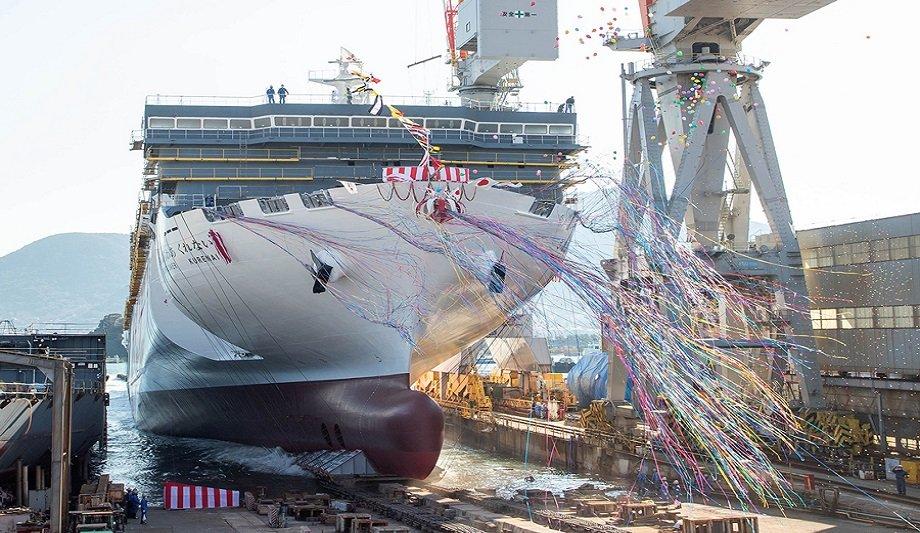Mitsubishi Shipbuilding Co., Ltd., a Mitsubishi Heavy Industries (MHI) Group company based in Yokohama held a christening and launch ceremony for the SUNFLOWER KURENAI, the first of two large LNG-fueled ferries being built for Mitsui O.S.K. Lines, Ltd. (MOL).
The ceremony took place at the Enoura Plant at MHI’s Shimonoseki Shipyard & Machinery Works in Yamaguchi Prefecture. The handover is scheduled for December 2022, following the completion of interior work and sea trials. The new vessel will go into service from January 2023 on a regular route between Osaka and Beppu operated by Oita-based Ferry Sunflower Limited, replacing the Sunflower Ivory and Sunflower Cobalt ferries in service since 1997.
Sunflower Kurenai ferry
The Sunflower Kurenai is 199.9m long and 28.0m wide, with a gross tonnage of approximately 17,300. The vessel can accommodate 716 passengers, an estimated 137 13-meter trucks, and roughly 100 passenger cars.
The main engine is a high-performance dual-fuel engine that can run on LNG and A-type heavy oil
The main engine is a high-performance dual-fuel engine, the first of its kind featured on a domestic ferry that can run on both liquefied natural gas (LNG) and A-type heavy oil. It offers outstanding environmental performance, achieving a 20% reduction in CO2 emissions and close to zero emissions of sulfur oxides (SOx), thereby mitigating environmental impact.
Increased space for trucks and passengers
Compared to earlier ferries, the Sunflower Kurenai also features significantly more loading capacity for trucks, a more spacious lounge for truck drivers, and substantially greater space per passenger.
Expansive public areas include enlarged bathing facilities, a more spacious restaurant, and an atrium extending through three stories. In these and other ways, the new ferry responds to a current modal shift in the transport industry while simultaneously achieving advances in the casual cruise business.
Reducing carbon footprint
Mitsubishi Shipbuilding is reducing the carbon footprint of the maritime industry through LNG-fueled ships
As part of MHI Group’s strategic initiatives to advance the energy transition, Mitsubishi Shipbuilding is reducing the carbon footprint of the maritime industry through the construction of LNG-fueled ships, as a way of contributing to realisation of a carbon-neutral society.
Japan is undergoing a modal shift from land transport to maritime transport in a quest to reduce carbon emissions as well as to offset a shortage of long-haul truck drivers and achieve workstyle reform. In tandem with this shift, demand is increasing for ferries and RoRo ships, and ever-larger ships.
Fuel-efficient ferries
Going forward, Mitsubishi Shipbuilding, as a maritime system integrator, will continue building fuel-efficient and environmentally harmonious ferries and cargo-passenger ships supporting the stable operation, working closely with its business partners to solve diverse issues needing to be addressed.
